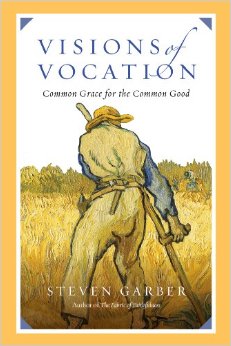We’ve been on the road in our busy season, and I wish you could have seen our large and interesting book displays among the good small town folk of our regional Wee Kirk, the PC(USA) small church conference and the somewhat more upscale national conference sponsored by the Christian Legal Society that brings together faithful lawyers, law professors, judges , human rights and religious liberty activists as well as legal scholar (and students – three cheers for law students preparing for their high calling in the legal profession.) Different sorts of events from a Mennonite camp surround by the turning Western Pennsylvania leaves to the hustle of Crystal City in Northern Virginia, it is our privilege to serve God’s people working to advance Christ’s Kingdom of grace wherever we can. Thanks to those who support our bookish work on line, too, for you enable us (insofar as we can remain solvent through your purchases) to help these various sorts of groups flourish and be encouraged. Thanks for being a part of this exciting story of Hearts & Minds and the way we get to serve groups that are doing good work.
Pray for us, too, as I speak tomorrow at a student conference (FLOW) at Penn State, and then drive to Montreat, North Carolina where I’ll join a stellar group doing an event there helping students and faculty and staff relate faith and scholarship as they prepare for various callings and careers. In between we’ll be setting up small displays at other events, from a woman’s retreat to an annual Luther lecture here in Central PA. Whew.
So, I don’t have as much time to carefully explore these books as I might wish. And I’m pretty tired from too many late nights. For now, just know that the new titles keep coming in. This is only a small portion of the many new books we get – sorry our inventory is not on line. But if you are looking for a title it may very well be that we have it here. And if not, you know we usually can order quite quickly. It is our pleasure to do research and serve your book needs, no matter what. Give us a call or send an inquiry through our website. Our staff here are at your service.
These are brand new and look great, don’t they? Enjoy. Send us an order by using the link at the end that takes you to our secure order form page.
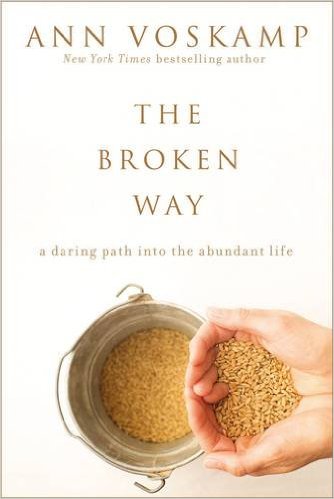 The Broken Way: A Daring Path Into the Abundant Life Ann Voskamp (Zondervan) $22.99 This just released and will be one of the biggest selling and most appreciated books of this year; we can be glad, too, as Voskamp is a great, energetic, poetic, artful writer. She has done two great family-oriented Advent devotionals, and a ton of forewords and endorsements; her presence in the world of popular religious writing is notable. But, actually, other than the lovely holiday books, she has not released a brand new work since her best-selling One Thousands Gifts nearly a decade ago. In some ways, then, this is truly major release, one that has incubated for quite a while. I dipped in to some of it already and the quality earned from polishing her craft these years is evident. And her guts in sharing beautifully her own brokenness is notable. Her discussion of love and giving and a meaningful way through our broken hearts — give it away! — is intimate and powerful. The Broken Way is handsomely designed, too, with a few nice touches well worthy of such a good author. Rave endorsements are from Eugene Peterson, Philip Yancey, Christine Caine, Lysa Terkeurst and many others which point us to the value of this raw look at pain and brokenness; honoring such hard stuff is, Voskamp says, the “daring path to abundance.” Check out the artful video clip trailer for the book, here.
The Broken Way: A Daring Path Into the Abundant Life Ann Voskamp (Zondervan) $22.99 This just released and will be one of the biggest selling and most appreciated books of this year; we can be glad, too, as Voskamp is a great, energetic, poetic, artful writer. She has done two great family-oriented Advent devotionals, and a ton of forewords and endorsements; her presence in the world of popular religious writing is notable. But, actually, other than the lovely holiday books, she has not released a brand new work since her best-selling One Thousands Gifts nearly a decade ago. In some ways, then, this is truly major release, one that has incubated for quite a while. I dipped in to some of it already and the quality earned from polishing her craft these years is evident. And her guts in sharing beautifully her own brokenness is notable. Her discussion of love and giving and a meaningful way through our broken hearts — give it away! — is intimate and powerful. The Broken Way is handsomely designed, too, with a few nice touches well worthy of such a good author. Rave endorsements are from Eugene Peterson, Philip Yancey, Christine Caine, Lysa Terkeurst and many others which point us to the value of this raw look at pain and brokenness; honoring such hard stuff is, Voskamp says, the “daring path to abundance.” Check out the artful video clip trailer for the book, here.
Gabe Lyons says she “penetrates the soul with words that arrest us, convict us, and compel us to the arms of our Father. Ann Voskamps come along once in a generation. We best pay attention.” Nice.
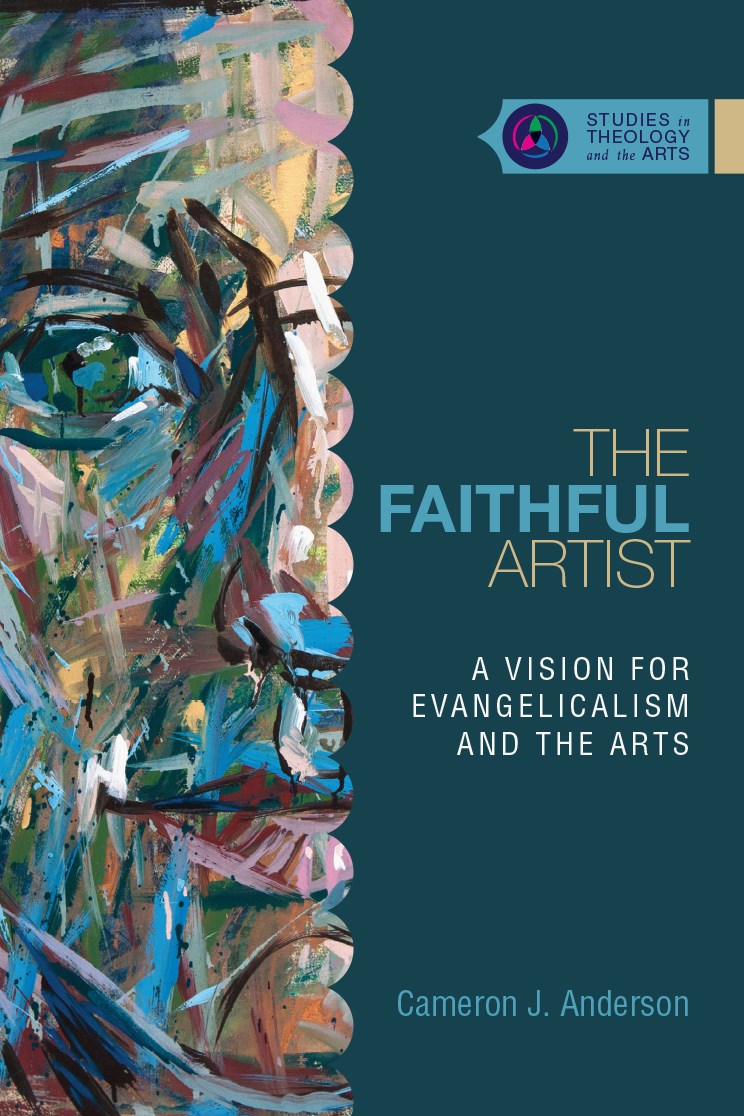 The Faithful Artist: A Vision for Evangelicalism and the Arts Cameron J. Anderson (IVP Academic /CIVA) $26.00 We are particularly excited to announce this major work by a friend, the well-loved Director of the astute national organization Christians in the Visual Arts. This is the second volume in the serious and important new series called “Studies in Theology and the Arts.” The first was a very detailed study and rebuttal of the aesthetic judgement of the seminal Hans Rookmaaker.
The Faithful Artist: A Vision for Evangelicalism and the Arts Cameron J. Anderson (IVP Academic /CIVA) $26.00 We are particularly excited to announce this major work by a friend, the well-loved Director of the astute national organization Christians in the Visual Arts. This is the second volume in the serious and important new series called “Studies in Theology and the Arts.” The first was a very detailed study and rebuttal of the aesthetic judgement of the seminal Hans Rookmaaker.
This second one is more positive, making a systematic and lovely case for evangelicals taking the arts more seriously. Cam has been working on this a long time and it could be seen as one of the most important books offered in this field in a very long time. That is, it is surely excellent. If you know any artists who are interested in faith, they simply must get this! CIVA is a premier professional association and we respect their work so much; it is a delight to announce this essential book by their director. Highly recommended.
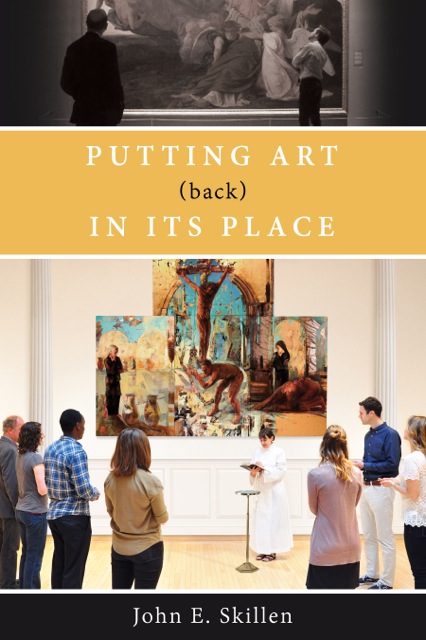 Putting Art (Back) In Its Place John
Putting Art (Back) In Its Place John
E. Skillen (Hendrickson) $24.95 Wow, what a fascinating book. I’ve
been waiting for this and haven’t even gotten to read a chapter, yet.
But I guarantee you some of our BookNotes newsletter readers are going
to love this. John Skillen is a specialist in medieval and Renaissance
literature and taught at Gordon College for years before launching an
arts-oriented semester abroad program in Orvieto Italy (in 1998.) This
book emerged from his teaching in Orvieto on the cultural context of
Renaissance Italian art, storytelling (including Dante’s Divine Comedy.)
With students of all ages he has been able to captivate them, sharing
his passion and (Christian) insight about Italian masterpieces. For
anyone interested in art history, in the Italian Renaissance, or in
Christian views of art, this book is going to be fabulous.
But here is what else you need to know: Skillen’s Putting Art (Back) In Its Place
is particularly concerned about the spiritually formative role of art
within the body of Christ and particularly within our church buildings
and worships spaces. As it says on the back cover:
takes
readers on a fascinating journey through the world of Christian art in
medieval and Renaissance Italy to rediscover the sacred role artwork can
play once again in our churches…. For centuries, works of art were
commissioned and created to tell stories, inspire faith, and unify
communities in their daily rhythms of work and worship. In medieval and
Renaissance Italy, art filled the streets, churches, businesses, and
halls of government. The whole body of Christ played a part in the
creation and use of art…
I
do not think that Skillen objects at all to the themes of Cam
Anderson’s wonderful call for evangelicals to embrace the arts, also the
arts in culture, Christian and otherwise. If CIVA (and Cam Anderson’s
book)offers a broader vision for artists -reacting to a cheesy and
self-referential and too often squelched sort of churchy insistence that
art be “religious” or “inspirational” and liberating artists from
supervision by the church – Skillen tells the other side of that. When
done with grand and majestic aesthetic excellence, art can indeed not
only bless the culture at large (and through common grace, pagan art can
bless us!) it nonetheless can and should be situated also within the
worshipping community. Has art been displaced from the faith community?
What can we do to “put art back in its place, at least within the
church? (Look at that cover, eh, with the large art piece by Bruce Herman!!)
Skillen’s
vision, here, I gather, is something broader than exclusively
liturgical art for use in worship; indeed, his hope is that “for
Christians to foster a vibrant culture of the arts again, we must
cultivate relationships among artists, patrons, scholars, communities,
and the art they create…” This book argues for a flourishing of the
arts just as CIVA would affirm, but focuses particularly on (inspired by
Orvieto and the Renaissance) how the visual arts have and can again
play in the life and mission of the church.
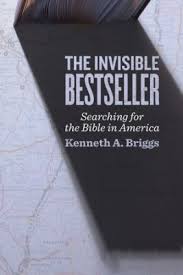 The Invisible Bestseller: Searching for the Bible in America
The Invisible Bestseller: Searching for the Bible in America
Kenneth Briggs(Eerdmans) $24.00 A veteran journalist and good writer
visits all sorts of places where the Bible is taught, sold, studied,
used, abused… a travelogue through how the Bible is appropriated in
American culture. Why is it such a huge bestseller, year after year, and
yet its impact seems negligible? This has been my own bedtime reading
this week and I’m really, really enjoying it – and learning a bit as the
author weaves together all kinds of curious stories, from Christian
bookseller conventions to prison Bible studies, from Presbyterian church
services to trips back in time learning about how the Bible was used
(or not) in American history. The Bible remains a bestseller, but it may
be nearly invisible. Why?
You have to look carefully at this odd cover — it’s the Bible casting a shadow on an old school road map. Clever, eh?
 Just Capitalism: A Christian Ethic of Economic Globalization Brent Waters (WJK) $40.00 There are plenty of rather doctrinaire Christian assessments in books about free market capitalism, praising the market as if God Himself spoke to Adam Smith and baptized Western capitalism; similarly there are some that are overly critical, informed more by Marxist analysis than Biblical insight. This brand new one , Just Capitalism, is one of the rare ones — astute, mature, serious, and very balanced. It’s witty, too, sophisticated but accessible. It looks really great.
Just Capitalism: A Christian Ethic of Economic Globalization Brent Waters (WJK) $40.00 There are plenty of rather doctrinaire Christian assessments in books about free market capitalism, praising the market as if God Himself spoke to Adam Smith and baptized Western capitalism; similarly there are some that are overly critical, informed more by Marxist analysis than Biblical insight. This brand new one , Just Capitalism, is one of the rare ones — astute, mature, serious, and very balanced. It’s witty, too, sophisticated but accessible. It looks really great.
James K.A. Smith says of it,
This is a book I’ve been waiting for: a careful, nuanced, but bold argument for the good of markets that neither demonizes them nor idolizes them. In other words, I no longer have to wait for Oliver O’Donovan to write a book on economics.
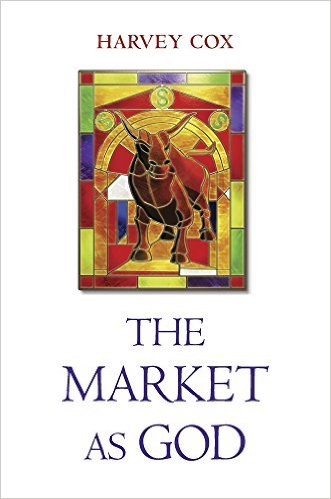 The Market As God Harvey Cox (Harvard University Press) $26.95 Speaking of tendencies to deify the market… this new book exposes such idolatry. Harvey Cox has been a major theological voice for a generation, and has shifted and deepened his own faith and analysis. The Market as God is a notable new book, obviously, and on an important, internationally respected publisher. I suspect it will be much discussed. I’m eager to see how professor Cox (perhaps informed by the likes of Smith’s “cultural liturgies” research) writes with, as E.J. Dione Jr. puts it, an “ingenious sense of how market theology has developed a scripture, a liturgy, and a sophisticated apologetics” which “allows us to see old challenges in a remarkably fresh light.” I wonder if it is somewhat similar to last year’s brilliant, provocative Eerdmans book The Altar of Wall Street? According to one review, this is not like all critics of the market, either, because the book is “trying to redeem it so that it might serve its proper ends.”
The Market As God Harvey Cox (Harvard University Press) $26.95 Speaking of tendencies to deify the market… this new book exposes such idolatry. Harvey Cox has been a major theological voice for a generation, and has shifted and deepened his own faith and analysis. The Market as God is a notable new book, obviously, and on an important, internationally respected publisher. I suspect it will be much discussed. I’m eager to see how professor Cox (perhaps informed by the likes of Smith’s “cultural liturgies” research) writes with, as E.J. Dione Jr. puts it, an “ingenious sense of how market theology has developed a scripture, a liturgy, and a sophisticated apologetics” which “allows us to see old challenges in a remarkably fresh light.” I wonder if it is somewhat similar to last year’s brilliant, provocative Eerdmans book The Altar of Wall Street? According to one review, this is not like all critics of the market, either, because the book is “trying to redeem it so that it might serve its proper ends.”
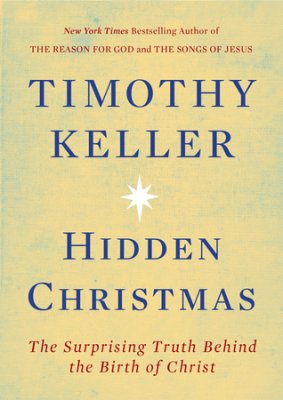 Hidden Christmas: The Surprising Truth Behind the Birth of Christ Timothy Keller (Viking) $20.00 Let me say we’ve got bunches of great new Advent books and maybe some are even more pleasant than this slim one. But it’s Keller, so I’m thrilled. It just came out a day or two ago, and I’ve only looked at the table of contents. Yes, it’s a tad pricey for less than 150 pages, but in Keller years, that’s like, uh, maybe 350 pages of content from a more ordinary author. So it’s well worth it, with 8 lovely sounding chapters. I like that he says that “Christmas, therefore, is the most unsentimental, realistic, way of looking at life.” Yep, there’s that: the incarnation is crazy, showing us God’s remarkable love and grace, and suggestion pretty strongly that we are truly in need of a savior. We cannot rescue ourselves. The world is a mess. It is worse than we may know. But the good news is better than we usually realize. I think this hard-hitting, quite logical explication of the truth of the holiday may be the best thing we’ve got on this in hears. Thanks be to God for authors and preachers who shoot straight: “There is a light outside of this world, and Jesus has come from it to save us.” We are not trapped. This is Christmas joy, for sure. Highly recommended.
Hidden Christmas: The Surprising Truth Behind the Birth of Christ Timothy Keller (Viking) $20.00 Let me say we’ve got bunches of great new Advent books and maybe some are even more pleasant than this slim one. But it’s Keller, so I’m thrilled. It just came out a day or two ago, and I’ve only looked at the table of contents. Yes, it’s a tad pricey for less than 150 pages, but in Keller years, that’s like, uh, maybe 350 pages of content from a more ordinary author. So it’s well worth it, with 8 lovely sounding chapters. I like that he says that “Christmas, therefore, is the most unsentimental, realistic, way of looking at life.” Yep, there’s that: the incarnation is crazy, showing us God’s remarkable love and grace, and suggestion pretty strongly that we are truly in need of a savior. We cannot rescue ourselves. The world is a mess. It is worse than we may know. But the good news is better than we usually realize. I think this hard-hitting, quite logical explication of the truth of the holiday may be the best thing we’ve got on this in hears. Thanks be to God for authors and preachers who shoot straight: “There is a light outside of this world, and Jesus has come from it to save us.” We are not trapped. This is Christmas joy, for sure. Highly recommended.
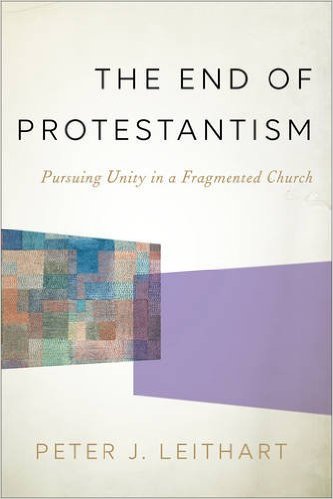 The End of Protestantism: Pursuing Unity in a Fragmented Church Peter J. Leithart (BakerAcademic) $21.99 Leithart may be one of the most interesting theological voices writing today, and his last few books have placed him into that rare circle of the “must read” theological scholars. Anyone interested in the nature of the church, the role of confessional truths, and the call to ecumenism will want to have this. I surely hope many are drawn to it as the unity of the Body of Christ is Jesus’s own passion. The rave reviews of The End of Protestantism are themselves so stimulating that it makes me really, really eager to read this carefully. (There are woefully few books on ecumenical theology from anybody, let alone from such a rigorous evangelical. Thanks be to God for this kind of work.)
The End of Protestantism: Pursuing Unity in a Fragmented Church Peter J. Leithart (BakerAcademic) $21.99 Leithart may be one of the most interesting theological voices writing today, and his last few books have placed him into that rare circle of the “must read” theological scholars. Anyone interested in the nature of the church, the role of confessional truths, and the call to ecumenism will want to have this. I surely hope many are drawn to it as the unity of the Body of Christ is Jesus’s own passion. The rave reviews of The End of Protestantism are themselves so stimulating that it makes me really, really eager to read this carefully. (There are woefully few books on ecumenical theology from anybody, let alone from such a rigorous evangelical. Thanks be to God for this kind of work.)
Stanley Hauerwas says that “Leithart simply cannot write a dull book. He cannot because he has the courage and intellect to go to the heart of the matter.” Richard Mouw, in a blurb on the back admits that he had given up finding “an alternative to the tribalism of divisive denominationalism and the ‘unity’ efforts of mainstream ecumenism.” Leithart convinced him that he gave up to quickly; Mouw continues: “This groundbreaking book combines exciting ecclesiological explorations with some practical steps for moving forward.” The fabulous Hans Boersma calls it “urgent and fearless.” I commend it urgently and fearlessly to mainline Protestants, evangelicals of all sorts and also to Roman Catholics and the Orthodox. I fear we won’t sell any at all, though, but let us pray that we do. We’ve got a stack here. I hope you know this means a lot to us. We should all care about the broader church. I hope this helps.
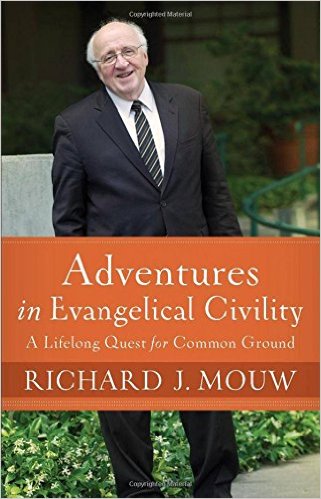 Adventures in Evangelical Civility: A Lifelong Quest for Common Ground Richard J. Mouw (Brazos Press) $24.99 Speaking of ecumenism, and of Mouw’s search for good books, this new memoir shares some of the inside scope. I wish I could call Mouw a mentor — his early books were among my favorites in the mid 70s and he remains an author I’d eager read, no matter what the topic. (You know he’ll quote Kuyper, probably a Catholic nun or mystic, and always a hymn or two.) He’s sensible, visionary, down-to-Earth, and, one of those scholars who has a particular calling, it seems, to translate the world of academia to the church and world. As a political theorist, an ethicist, and and active Presbyterian — who used to teach at Calvin College, even though he wasn’t raised in the Dutch Calvinist worldview tradition — he is my kind of guy. If you’ve followed by own Facebook you will know that I recently used his lovely Uncommon Decency (a very wonderful book on civility) in an adult education class.
Adventures in Evangelical Civility: A Lifelong Quest for Common Ground Richard J. Mouw (Brazos Press) $24.99 Speaking of ecumenism, and of Mouw’s search for good books, this new memoir shares some of the inside scope. I wish I could call Mouw a mentor — his early books were among my favorites in the mid 70s and he remains an author I’d eager read, no matter what the topic. (You know he’ll quote Kuyper, probably a Catholic nun or mystic, and always a hymn or two.) He’s sensible, visionary, down-to-Earth, and, one of those scholars who has a particular calling, it seems, to translate the world of academia to the church and world. As a political theorist, an ethicist, and and active Presbyterian — who used to teach at Calvin College, even though he wasn’t raised in the Dutch Calvinist worldview tradition — he is my kind of guy. If you’ve followed by own Facebook you will know that I recently used his lovely Uncommon Decency (a very wonderful book on civility) in an adult education class.
This biography tells of the journey of one of the premier evangelical public intellectuals of our time. Blurbs on the back are stellar — Krista Tippett (I hope you know her “On Being” radio on NPR) says, after a lovely, lengthy description, “How grateful I am that Richard Mouw is in the world, and how glad I am that he has written this book.” Me too. I trust you will be too. Get it today!
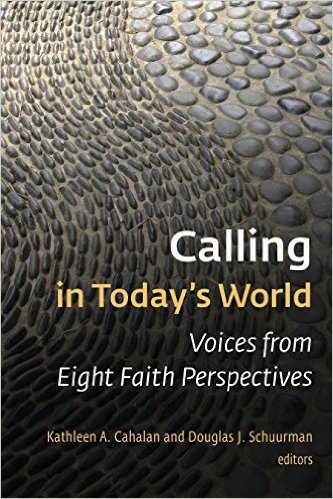 Calling in Today’s World: Voices from Eight Faith Perspectives edited by Kathleen Cahalan & Douglas Schuurman (Eerdmans) $25.00 There has been much written at a popular level on calling and vocation in recent years (yay!) and there have been a few very substantial theological reflections as well. This new volume is a fascinating work, a rather unique contribution, offering various takes on the notions of vocation, explaining how calling is perceived and practiced in eight different world religions and faith traditions. Included are how this key Christian notion is explained, construed, taught and lived out within not only Protestant and Catholic churches but within Judaism, Islam, Buddhism, Hinduism, among Confucianism and Daoism and even within more secularized humanism. Kristin Johnston Largen of the Lutheran Seminary at Gettysburg notes how useful this is for Christians in our increasingly interreligious world and that it is “interesting, accessible.” Calling in Today’s World is co-edited by Kathleen Cahalan of Saint John’s School of Theology and Seminary in Collegeville who recently co-wrote the excellent Christian Practical Wisdom: What It Is, Why It Matters and Douglas Schuurman who is professor of religion at St. Olaf College and the author of the thoughtful, must-read Vocation: Discerning Our Callings in Life. Some of the authors are themselves practitioners of the faith being described and a few are scholars but not adherents. It’s a fascinating work.
Calling in Today’s World: Voices from Eight Faith Perspectives edited by Kathleen Cahalan & Douglas Schuurman (Eerdmans) $25.00 There has been much written at a popular level on calling and vocation in recent years (yay!) and there have been a few very substantial theological reflections as well. This new volume is a fascinating work, a rather unique contribution, offering various takes on the notions of vocation, explaining how calling is perceived and practiced in eight different world religions and faith traditions. Included are how this key Christian notion is explained, construed, taught and lived out within not only Protestant and Catholic churches but within Judaism, Islam, Buddhism, Hinduism, among Confucianism and Daoism and even within more secularized humanism. Kristin Johnston Largen of the Lutheran Seminary at Gettysburg notes how useful this is for Christians in our increasingly interreligious world and that it is “interesting, accessible.” Calling in Today’s World is co-edited by Kathleen Cahalan of Saint John’s School of Theology and Seminary in Collegeville who recently co-wrote the excellent Christian Practical Wisdom: What It Is, Why It Matters and Douglas Schuurman who is professor of religion at St. Olaf College and the author of the thoughtful, must-read Vocation: Discerning Our Callings in Life. Some of the authors are themselves practitioners of the faith being described and a few are scholars but not adherents. It’s a fascinating work.
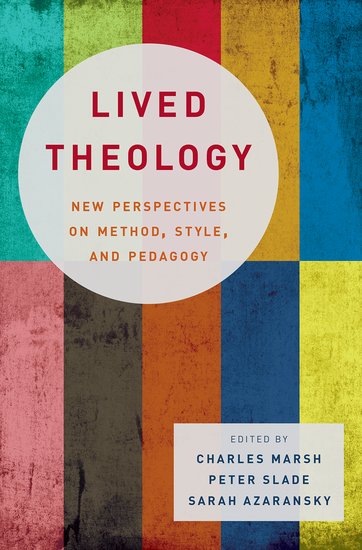 Lived Theology: New Perspectives on Method, Style and Pedagogy edited by Charles Marsh, Peter Slade & Sarah Azaransky (Oxford University Press) $29.95 Do you know the “lived theology” project at University of Virginia? It’s heavy, serious stuff, even as it is bringing sophisticated scholarship to ordinary life as the context for doing theology. As Cheryl J. Sanders (author of Saints in Exile) puts it, the methodology and rationale of lived theology movement is to use “the primary source of data of social change, such as field reports and oral histories, in order to discover vital theological conversations, convictions, and commitments” in the real world lives of people and cultures. They have held conferences and published papers and done think-tank stuff exploring ways in which theology is done “on the ground” as a lived practice for years, now, and this thick hardback is a long-awaited compilation of good pieces. Our friend David Dark has a chapter called “Insert Soul Here: Lived Theology as Witness.”
Lived Theology: New Perspectives on Method, Style and Pedagogy edited by Charles Marsh, Peter Slade & Sarah Azaransky (Oxford University Press) $29.95 Do you know the “lived theology” project at University of Virginia? It’s heavy, serious stuff, even as it is bringing sophisticated scholarship to ordinary life as the context for doing theology. As Cheryl J. Sanders (author of Saints in Exile) puts it, the methodology and rationale of lived theology movement is to use “the primary source of data of social change, such as field reports and oral histories, in order to discover vital theological conversations, convictions, and commitments” in the real world lives of people and cultures. They have held conferences and published papers and done think-tank stuff exploring ways in which theology is done “on the ground” as a lived practice for years, now, and this thick hardback is a long-awaited compilation of good pieces. Our friend David Dark has a chapter called “Insert Soul Here: Lived Theology as Witness.”
Lauren Winner says,
“Lived theology” has been among the most vivifying and necessary scholarly movements of the last decade and a half. In illustrating how to read the texts of people’s lives for clues about God, this book inspires, tempts, informs and provokes.
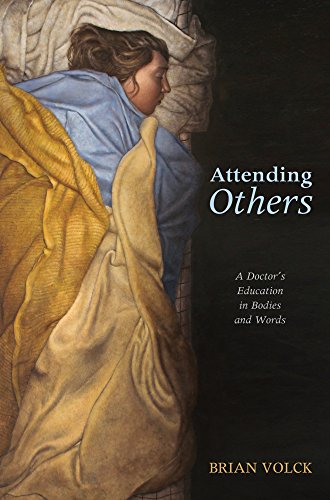 Attending Others: A Doctor’s Education in Bodies and Words Brian Volck (Cascade) $25.00 I feel badly that this stunning book can only be mentioned quickly here, now, as it is precious, artful, and wonderful. I hope to tell you more later. What a fine author this is, a poet and writer with an MFA who is a practicing pediatric doctor. He has co-written a previous book on medicine which is very important, but this, this, oh my, it is a beautiful work! There is a bit in here about his travels in the developing world, doctring in service to the poor in rural Guatamala, for instance. Much of what he has learned about medicine, he say, he has learned form listening well — to patience, to people, to children, and, yes, to books, literature and poetry. Warm and glowing endorsements are on the back from Wendell Berry, Paul Farmer, and other important writers. Attending Others is quite simply one of the most beautiful and thrilling and moving books I’ve read this year — it is very highly recommended for anyone who cares about medicine, health care, illness, bodies, justice, literature, life — whether one is a health care provider or not. Thanks, Brian, for your attention to work and to words.
Attending Others: A Doctor’s Education in Bodies and Words Brian Volck (Cascade) $25.00 I feel badly that this stunning book can only be mentioned quickly here, now, as it is precious, artful, and wonderful. I hope to tell you more later. What a fine author this is, a poet and writer with an MFA who is a practicing pediatric doctor. He has co-written a previous book on medicine which is very important, but this, this, oh my, it is a beautiful work! There is a bit in here about his travels in the developing world, doctring in service to the poor in rural Guatamala, for instance. Much of what he has learned about medicine, he say, he has learned form listening well — to patience, to people, to children, and, yes, to books, literature and poetry. Warm and glowing endorsements are on the back from Wendell Berry, Paul Farmer, and other important writers. Attending Others is quite simply one of the most beautiful and thrilling and moving books I’ve read this year — it is very highly recommended for anyone who cares about medicine, health care, illness, bodies, justice, literature, life — whether one is a health care provider or not. Thanks, Brian, for your attention to work and to words.
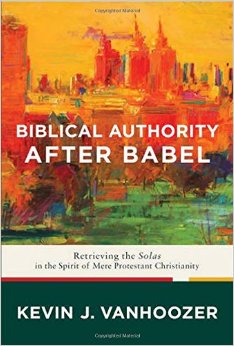 Biblical Authority After Babel: Retrieving the Solas in the Spirit of Mere Protestant Christianity Kevin J. Vanhoozer (Baker Academic) $21.99 Vanhoozer’s latest, long awaited book just arrived and is already being discussed in many places on the internet. You will be hearing more about this, I’m sure. A major work by a significant author — not unlike Liethart, Vanhoozer is somebody who you simply must read if you are a working theologian. This one offers a “fresh appraisal of the core principles of historic Protestant Christianity.” As Reformation scholar Timothy George says it is “written with conviction, nuance, and wisdom, this is Kevin Vanhoozer at his best – a treasure.” Wheaton College prof Beth Falker Jones says “I’ve been waiting years for this book!” Even though the book is a call for Protestant unity around Reformation themes, Catholic theologian Matthew Levering raves on the back, insisting that those of other traditions should “listen to Vanhoozer’s rigorous, gracious, and erudite defense of the truth of Protestant Christianity.” We are entering the 500th year of the Protestant reformation, as I’m sure you know, so why not make this one of the books you read to help you enter the conversations.
Biblical Authority After Babel: Retrieving the Solas in the Spirit of Mere Protestant Christianity Kevin J. Vanhoozer (Baker Academic) $21.99 Vanhoozer’s latest, long awaited book just arrived and is already being discussed in many places on the internet. You will be hearing more about this, I’m sure. A major work by a significant author — not unlike Liethart, Vanhoozer is somebody who you simply must read if you are a working theologian. This one offers a “fresh appraisal of the core principles of historic Protestant Christianity.” As Reformation scholar Timothy George says it is “written with conviction, nuance, and wisdom, this is Kevin Vanhoozer at his best – a treasure.” Wheaton College prof Beth Falker Jones says “I’ve been waiting years for this book!” Even though the book is a call for Protestant unity around Reformation themes, Catholic theologian Matthew Levering raves on the back, insisting that those of other traditions should “listen to Vanhoozer’s rigorous, gracious, and erudite defense of the truth of Protestant Christianity.” We are entering the 500th year of the Protestant reformation, as I’m sure you know, so why not make this one of the books you read to help you enter the conversations.
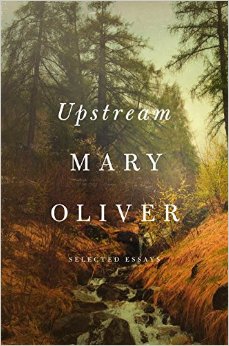 Upstream: Selected Essays Mary Oliver (Penguin Press) $26.00 This is nearly a publishing event, the first collection of essays by the esteemed poet, one of the most loved and respected of our time. I haven’t had time to read any of it yet – heaven help me if I’m too busy for Mary Oliver! – so what can I say? It’s dedicated to Ann Tyler. I’ve held the book itself with it’s lovely cover quite longingly. I am sure it’s pages are beautiful, honest, life giving.
Upstream: Selected Essays Mary Oliver (Penguin Press) $26.00 This is nearly a publishing event, the first collection of essays by the esteemed poet, one of the most loved and respected of our time. I haven’t had time to read any of it yet – heaven help me if I’m too busy for Mary Oliver! – so what can I say? It’s dedicated to Ann Tyler. I’ve held the book itself with it’s lovely cover quite longingly. I am sure it’s pages are beautiful, honest, life giving.
Of course, some of it may be almost what we might call nature writing — as anyone who loves her poems would expect. She reuminates and reflects in prose about some of the same themes that animate her poetry. But also, there is some writing about her “artistic labor” and that, surely, will be wonderful to behold.
Some of you want this, some of you should read it, really. You know who you are.
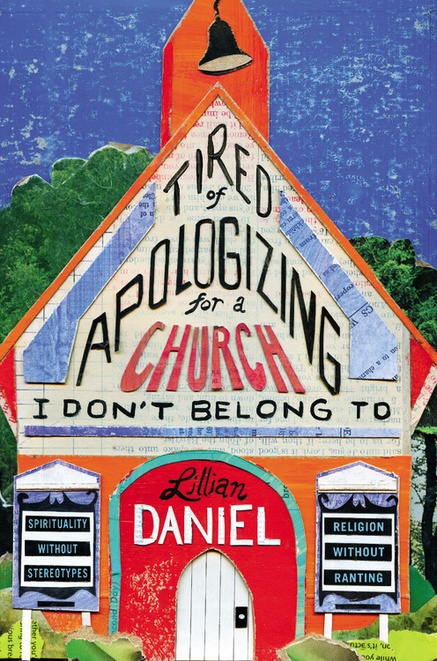 Tired of Apologizing for a Church I Don’t Belong To Lillian Daniel (FaithWords) $22.00 I suppose those who know Lillian will want to order this right away – she’s a respected, lively author, feisty as a progressive UCC pastor and yet eager to be clear about the centrality of the gospel. This may seem a bit like a variety of chapters (which is fine, given her writing talents) but it is more than a collection of her great essays even though each chapter could easily stand on its own (making it great for small group use) it does hang together. Like the title suggests, it is relentless in making a case for liberal church folk to stop apologizing for the worst of Christianity and redouble efforts to affirm and celebrate and invite people to open, good-hearted faith found most often in ordinary mainline congregations.
Tired of Apologizing for a Church I Don’t Belong To Lillian Daniel (FaithWords) $22.00 I suppose those who know Lillian will want to order this right away – she’s a respected, lively author, feisty as a progressive UCC pastor and yet eager to be clear about the centrality of the gospel. This may seem a bit like a variety of chapters (which is fine, given her writing talents) but it is more than a collection of her great essays even though each chapter could easily stand on its own (making it great for small group use) it does hang together. Like the title suggests, it is relentless in making a case for liberal church folk to stop apologizing for the worst of Christianity and redouble efforts to affirm and celebrate and invite people to open, good-hearted faith found most often in ordinary mainline congregations.
Some of this new book found its genesis in the way liberal Christians criticized her last book (When ‘Spiritual But Not Religious’ Is Not Enough) and especially one widely circulated chapter that mocked those who call themselves “spiritual but not religious.” Mainline liberals, of course, are reluctant to criticize those hurt by the church or those whose spirituality is vague and sunshiny or unorthodox; some are so generous as to suggest we dare not criticize anyone (well, except for fundamentalists, but that’s another story.) Rev. Daniel offered a sharp and witty call to the so-called ‘nones’ in that book to grow up, get serious, and join a faith community that is more realistic, more gritty, more substantial, more lasting (built, as authentic faith is, on the Scriptures and traditions and ways passed down through the ages.) Well, now she’s pushing back a bit against those friendly fire critics, once again insisting that the most real faith is lived out in community with those gathered to worship and pray and serve and live out faith together.
Lilian Daniel’s Tired of Apologizing… is at once what we might think of as liberal and yet calling us to solid, lasting things. It is witty, acerbic, tender, sharp, kind, funny and, at more than once, made me scratch my head. What a book! I hate the cover, but the writing is wonderful, the flow energetic and captivating. It is a good read for anyone trying to figure out the “nones” and how moderate, lively, progressive faith can gather people, not by always, always, complaining about the bad things of Christianity, but holding up the positive call to robust spiritual community.
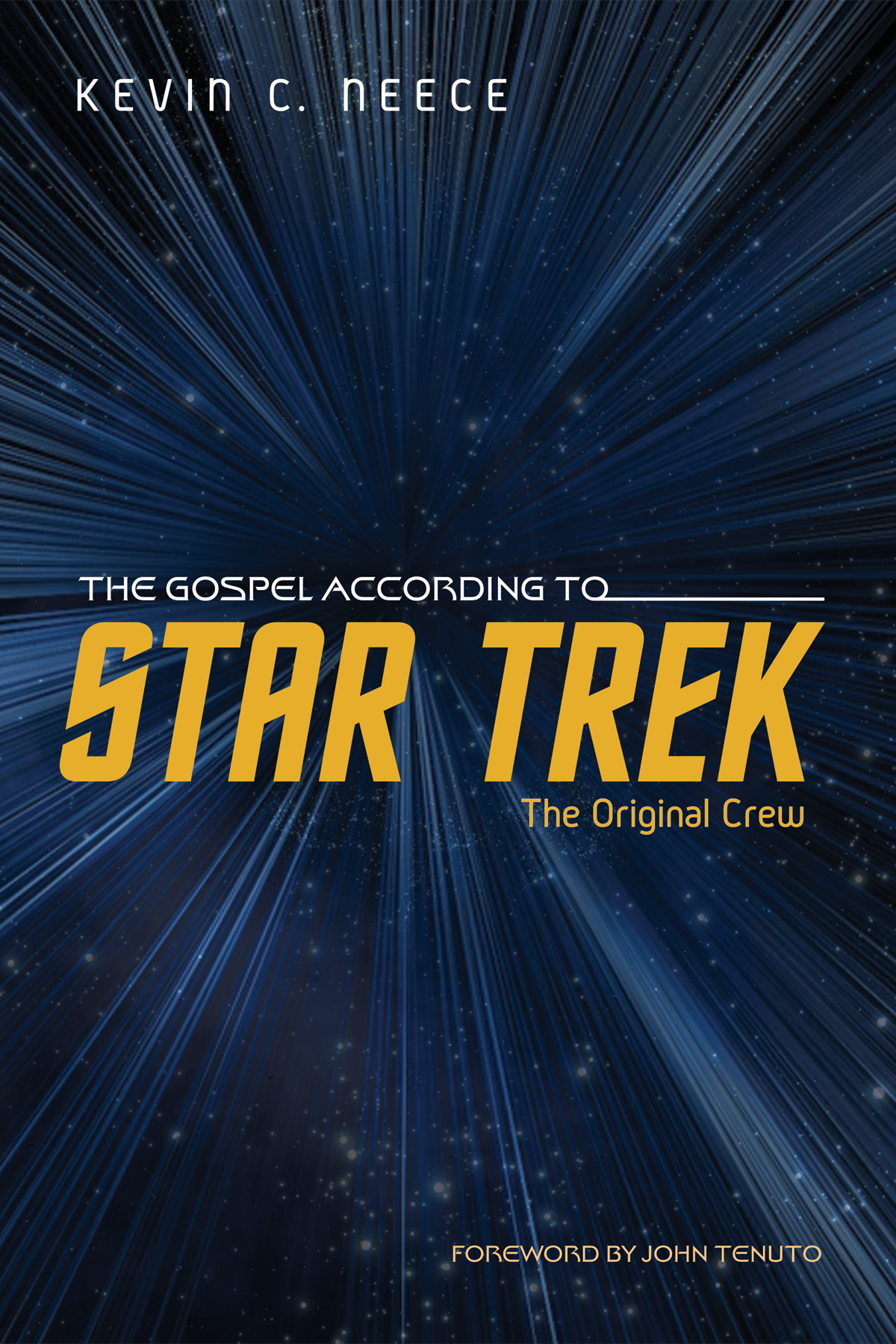 The Gospel According to Start Trek: The Original Crew Kevin C. Neece (Cascade) $24.00 Nearly three decades ago one could count on one hand (actually, a few fingers of one hand) the respectable books that explored the interface of popular culture and Christianity and even fewer were those that wisely approached popular culture in light of a robust, orthodox, Christian perspective. A seminal figure in the rise of a generation of scholars in this field was my old pal William David Romanowski whose Eyes Wide Open remains an essential read. The colorful, popular and at times breathtaking writer and thinker David Dark followed up with the must-read Every Day Apocalypse and, I’d say, by the turn of the century we were off to the races. We have shelves and shelves of pop culture studies, Christian views of contemporary music, video games, film and TV reviews. In the last year there have been some fun books on Star Wars, sci fi stuff, and, of course, the marvelous little book by Square Halo Books, Bigger on the Inside: Christianity and Doctor Who.
The Gospel According to Start Trek: The Original Crew Kevin C. Neece (Cascade) $24.00 Nearly three decades ago one could count on one hand (actually, a few fingers of one hand) the respectable books that explored the interface of popular culture and Christianity and even fewer were those that wisely approached popular culture in light of a robust, orthodox, Christian perspective. A seminal figure in the rise of a generation of scholars in this field was my old pal William David Romanowski whose Eyes Wide Open remains an essential read. The colorful, popular and at times breathtaking writer and thinker David Dark followed up with the must-read Every Day Apocalypse and, I’d say, by the turn of the century we were off to the races. We have shelves and shelves of pop culture studies, Christian views of contemporary music, video games, film and TV reviews. In the last year there have been some fun books on Star Wars, sci fi stuff, and, of course, the marvelous little book by Square Halo Books, Bigger on the Inside: Christianity and Doctor Who.
But, oh my, haven’t we been waiting for a really good book on Star Trek? Friends, the wait is over. This is the book to read. It’s been in the making for years – the author studied under worldview scholar and Christian philosopher David Naugle (who calls this new book “a treasure”) and has been pondering this for years. I am so excited to announce it to the world. It is not simplistic or cheesy at all, but plumbs the episodes and deep ideas for gospel truths. This really is a wonderful new book.
Here are what a few others say Neese’s The Gospel According to Star Trek, the brand new book on Gene Roddenberry’s own spiritual quest as seen in the continuing voyages of Kirk and company aboard the Enterprise “from the Original Series to Star Trek and Beyond tell us more about our human quest for God than you ever imagined.”
By the way, besides giving this to any Trekkies you know (Christian or otherwise – it’s that good!) it might be interesting to anyone with an interest in pop culture, history, big questions, and who enjoys pondering the sorts of stuff that has been being asked by sci-fi for a century. Star Trek itself premiered on NBC on Thursday, September 8th 1966. The show was entitled “The Man Trap.” This stuff has endured for a reason, and the market for this book is surely bigger than most of us might imagine. Why not get a few to give out, offer a class at church, or start a book club on campus. or at your local coffee shop? I bet it will attract all sorts of thoughtful conversation. May this help us to, as Jesus offered in John 10:10, “live long and prosper.” Okay, sorry. I had to say it. Congrats to Kevin Neese for this marvelous new work.
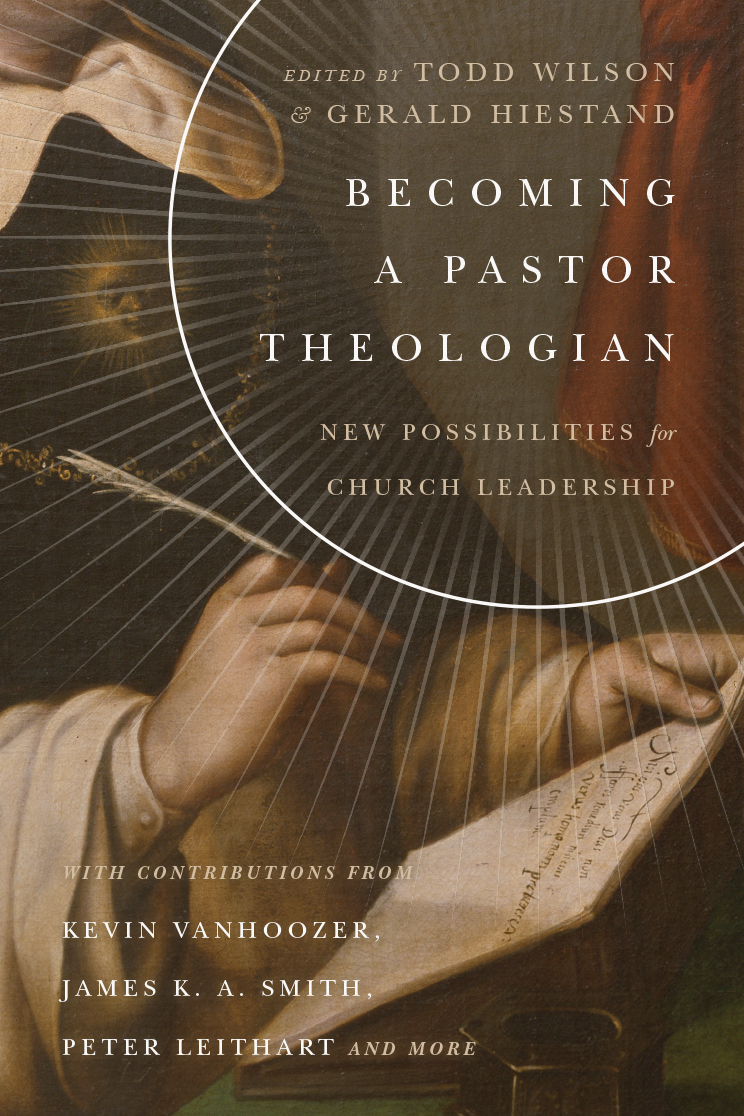 Becoming a Pastor Theologian: New Possibilities for Church Leadership edited by Todd Wilson & Gerald Hiestand (IVP Academic) $25.00 What an amazing collection! I hope you know Vanhoozer’s book from a year ago insisting that the best pastors are “theologians in residence” and that renewing the theological vocation of pastors is especially needed in these complicated days. This new collection came out of what must have been a fabulous conference around these concerns, offering both pastors and congregants with new ideas about how church leaders can live into this calling of being a “pastor theologian.”
Becoming a Pastor Theologian: New Possibilities for Church Leadership edited by Todd Wilson & Gerald Hiestand (IVP Academic) $25.00 What an amazing collection! I hope you know Vanhoozer’s book from a year ago insisting that the best pastors are “theologians in residence” and that renewing the theological vocation of pastors is especially needed in these complicated days. This new collection came out of what must have been a fabulous conference around these concerns, offering both pastors and congregants with new ideas about how church leaders can live into this calling of being a “pastor theologian.”
It looks really well done, with chapters on the identity of the pastor, examples from history (Calvin, Boston, Newman, Bonhoeffer) and six hefty chapters on the Bible and its commission for thoughtful pastors. Good contributions by Kevin Vanhoozer, James K.A. Smith, Peter Leithart, Lauri Norris, and others. At the risk of seeming like too much of a fanboy, I read the Jamie Smith chapter and, yep, it is worth the price of admission just for that one. Highly recommended.
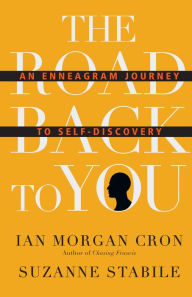 The Road Back to You: An Enneagram Journey to Self-Discovery Ian Morgan Cron & Suzanne Stabile (IVP) $24.00 study guide $9.00 I have not been one to warm up to the Myers-Briggs personality tests, the “Strength Finders” and other such assessment tools, let alone the weirder Enneagram. I know some folks have found it very helpful — Richard Rohr has a very good book on it — and spiritual directors and contemplative types use it to help folks not only with self- knowledge and better relationships with others but as a tool for spiritual formation in one’s deepest relationship with God. I get that, but it still has just been a bit too eccentric for me – when I hear people say their number (and their “wing” number) it just sounds too Gnostic, full of insider info, too much to keep straight.
The Road Back to You: An Enneagram Journey to Self-Discovery Ian Morgan Cron & Suzanne Stabile (IVP) $24.00 study guide $9.00 I have not been one to warm up to the Myers-Briggs personality tests, the “Strength Finders” and other such assessment tools, let alone the weirder Enneagram. I know some folks have found it very helpful — Richard Rohr has a very good book on it — and spiritual directors and contemplative types use it to help folks not only with self- knowledge and better relationships with others but as a tool for spiritual formation in one’s deepest relationship with God. I get that, but it still has just been a bit too eccentric for me – when I hear people say their number (and their “wing” number) it just sounds too Gnostic, full of insider info, too much to keep straight.
But, hey: this is the book to unlock the mystery, make learning this stuff fun (and useful) and help anyone grow into better self-awareness. (And, geesh, remember what Calvin said about the close relationship between self-knowledge and knowledge of God! So there, I say to myself.) The Road Back to you is a blast to read and helpful.
I have loved the wildly well-written previous books of Ian Cron (you have to know his hilarious, poignant memoir Jesus, My Father, the CIA and Me: A Memoir, of Sorts and his novel Chasing Francis) but The Road Back to You is his funniest yet. He’s a born storyteller, there are tons of great examples and illustrations in this energizing book. His co-author is apparently one of the best trainers in E stuff anywhere (and quite a raconteur herself.) They tell you what their numbers are, and the numbers and wings of their spouses — and it all starts to make sense! Yes! I don’t care what triad or number or wing you are, or if, like me, you have no idea what any of that means — this is a fabulously interesting and enjoyable book and bound to help you find what they call your true self. That’s got to be good, eh?
For what it is worth, the Enneagram system tends to categorize people by their personality trait that is informed by a certain sinful tendency, created by a particular woundedness. This self-awareness of the roots of our weaknesses and foibles and the messages of hope we most need to counter-act these deep wounds can be very, very helpful, even if you don’t buy the whole nine yards of this ancient template. There’s a good workbook to and I suppose only certain “numbers” will want to use it. I think it could be fruitful to actually process this stuff — maybe even do it with a small group that you trust. Could be fun. The book offers Christian insight, too, but it isn’t heavy handed. Did I mention that it is funny? And helpful?
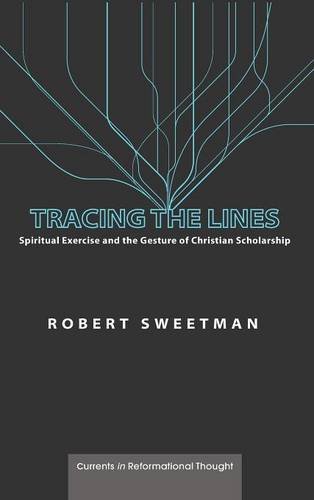 Tracing the Lines: Spiritual Exercise and the Gesture of Christian Scholarship (“Currents in Reformational Thought”) Robert Sweetman (Wipf & Stock) $24.00 As a younger man I was inspired, and I guess influenced, by the mostly Dutch neo-Kuyperian intellectuals who founded the truly remarkable grad and PhD-level college Institute for Christian Studies in Toronto. Professors and former PhD students from that small, rigorous graduate school such as Al Wolters, Brian Walsh, Richard Middleton, Sylvia Keesmaat, Paul Marshall, Jim Olthius, Robert Goudzewaard, Calvin Seerveld, Adreian Chaplin, James, K.A. Smith, and friends of ICS such as Jim Skillen, Evan Runner, Nicholas Wolterstorff, Elaine Storkey, Gideon Strauss, George Marsden, and Elaine Botha are all among those who pioneered the language of integrating faith and scholarship in the 1970s and on. ICS has carried on with this unique blend of reformational scholarship, holding up a vision of God’s shalom in all of life, including the mandate for an inner reformation of the fields within the arts and sciences, particularly as influenced by the philosophy of Dutch Christian scholar Herman Dooyeweerd. To serve God well in the world, we have to think well about the creation and the idols of the age. They do this at a pretty in-depth philospohical level, much of which is beyond those who are not professional scholars. But folks all over have understood the importance of their witness and have sacrificed to support their educational mission. Many still do.
Tracing the Lines: Spiritual Exercise and the Gesture of Christian Scholarship (“Currents in Reformational Thought”) Robert Sweetman (Wipf & Stock) $24.00 As a younger man I was inspired, and I guess influenced, by the mostly Dutch neo-Kuyperian intellectuals who founded the truly remarkable grad and PhD-level college Institute for Christian Studies in Toronto. Professors and former PhD students from that small, rigorous graduate school such as Al Wolters, Brian Walsh, Richard Middleton, Sylvia Keesmaat, Paul Marshall, Jim Olthius, Robert Goudzewaard, Calvin Seerveld, Adreian Chaplin, James, K.A. Smith, and friends of ICS such as Jim Skillen, Evan Runner, Nicholas Wolterstorff, Elaine Storkey, Gideon Strauss, George Marsden, and Elaine Botha are all among those who pioneered the language of integrating faith and scholarship in the 1970s and on. ICS has carried on with this unique blend of reformational scholarship, holding up a vision of God’s shalom in all of life, including the mandate for an inner reformation of the fields within the arts and sciences, particularly as influenced by the philosophy of Dutch Christian scholar Herman Dooyeweerd. To serve God well in the world, we have to think well about the creation and the idols of the age. They do this at a pretty in-depth philospohical level, much of which is beyond those who are not professional scholars. But folks all over have understood the importance of their witness and have sacrificed to support their educational mission. Many still do.
Recently the new generation of leaders at ICS have created a parallel think-tank called the Centre for Philosophy, Religions & Social Ethics (CPRSE) and it is in cooperation with them that ICS Professor Sweetman – a medievalist, professionally – offers this long-awaiting reflection on the very nature of distinctively Christian scholarship. This remarkable new book, Tracing the Lines, is a must-read for anyone interested in serious-minded but spiritually alive thinking and for anyone working within the halls of the academy wishing to point the way to God’s healing grace in those academic disciplines.
Calvin Seerveld offers this endorsement:
This learned book reads like an exciting detective story. A ‘Christian scholarship’ whodunit? Rather than give a traditional argumentative judgement, Sweetman ends up surprising us, and invites every scholar into the confessional: What is the shape of your heart aligned with the Scriptures? A genial, engaging, profound book.
Deborah Bowen (chair of the English department at Redeemer University College) notes that, Tracing the Lines is:
A lovely, challenging book for all Christian scholars concerned with a real connection between their scholarship and their hearts. Sweetman writes with the generous humility he advocates; describing Christian scholarship as ‘a beloved folk-recipe,’ he manages to simultaneously be philosophically rigorous and spiritually winsome. I want to be part of the scholarly community of mutual trust and correction to which he calls his readers.
Perhaps this description will intrigue you: as a Reformed thinker, Sweetman (the H. Evan Runner Chair in the History of Philosophy at ICS) specializes in Dominican thought – in particular Aquinas, Meister Eckhart, and the florescence of women’s contemplative thought supported by Dominicans in the thirteenth century. As a reformational philosopher he stands particularly on the shoulders of Dooyeweerd’s colleague D.H.Th. Vollenhoven.
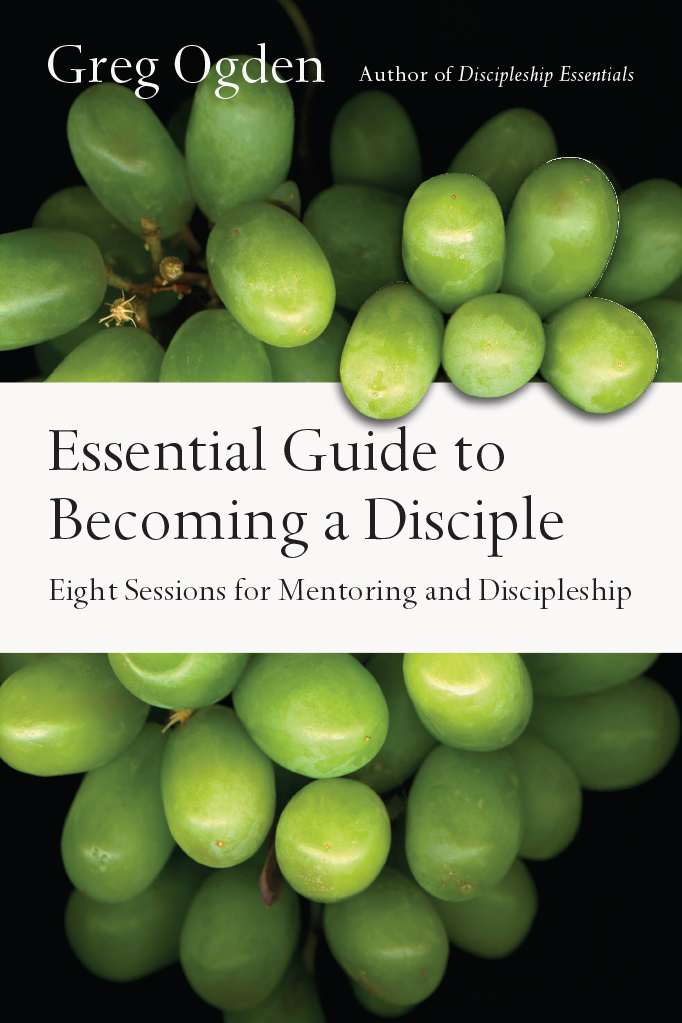 Essential Guide to Becoming a Disciple: Eight Sessions for Mentoring and Discipleship Greg Odgen (IVP) $15.00 Perhaps you’ve used the big collection called Discipleship Essentials: A Guide to Building Your Life in Christ. That one includes pretty demanding lessons and 24 of ’em. We are real fans of it, and its sequels such as The Essential Commandment: A Disciple’s Guide to Loving God and Others which is also quite thorough, but only 12 in-dpeth, practical sessions. This brand new one is a more easily used version, with 8 shorter lessons. I think this could be one of the very best little guides to introduce basic Christian stuff for beginners. Or anyone who needs a clear, empowering, refresher on discipleship. I trust Ogden a lot, and enjoy these lessons — which, by the way, carry an extra benefit: folks learn to look up Bible verses and study the Scriptures for themselves.
Essential Guide to Becoming a Disciple: Eight Sessions for Mentoring and Discipleship Greg Odgen (IVP) $15.00 Perhaps you’ve used the big collection called Discipleship Essentials: A Guide to Building Your Life in Christ. That one includes pretty demanding lessons and 24 of ’em. We are real fans of it, and its sequels such as The Essential Commandment: A Disciple’s Guide to Loving God and Others which is also quite thorough, but only 12 in-dpeth, practical sessions. This brand new one is a more easily used version, with 8 shorter lessons. I think this could be one of the very best little guides to introduce basic Christian stuff for beginners. Or anyone who needs a clear, empowering, refresher on discipleship. I trust Ogden a lot, and enjoy these lessons — which, by the way, carry an extra benefit: folks learn to look up Bible verses and study the Scriptures for themselves.
Ogden’s classic guide to mentoring others — in triads, he mostly recommends — is called Transforming Discipleship: Building Disciples a Few at a Time and it, too, has been revised and recently reissued. Nice.
By the way, Greg Ogden used to be at one of the Pittsburgh churches (Bellefield Presbyterian) where the CCO was first working. His passion for outreach in the campus community was significant, and his training others to disciple young Christians in helpful ways was legendary. I’m glad to have met him years ago, and respect these fine, Bible-based, lessons for growing in faith and practice.
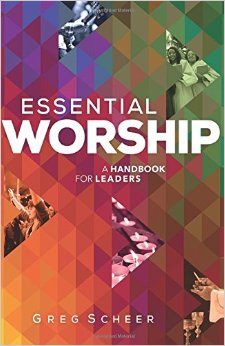 Essential Worship: A Handbook for Leaders Greg Scheer (Baker Books) $19.99 Speaking of Bellefield Presbyterian Church in Pittsburgh, this author used to be the organist and worship leader there. I recall as a young man — I love telling this story — how he told me he was going to write a book. If I knew him better I would have realized he was gifted, insightful, creative, and would, in fact, write a book. We recommended any number of important resources to him in those years and, sure enough, as he was moving to the wonderfully liturgically rich CRC Church of the Servant in Grand Rapids, his first book came out. We love The Art of Worship and feel glad that we sold books to him in those years, surely setting him on a path towards what he is today — one of the most esteemed liturgists, contemporary worship leaders, and creative worship pastors in the country. Greg is a contributor to several well loved hymnals, is a music associate with the Calvin Institute on Christian Worship, and his music has been published by publishers such as Augsburg Fortress, GIA, Abingdon, and Worship Today.
Essential Worship: A Handbook for Leaders Greg Scheer (Baker Books) $19.99 Speaking of Bellefield Presbyterian Church in Pittsburgh, this author used to be the organist and worship leader there. I recall as a young man — I love telling this story — how he told me he was going to write a book. If I knew him better I would have realized he was gifted, insightful, creative, and would, in fact, write a book. We recommended any number of important resources to him in those years and, sure enough, as he was moving to the wonderfully liturgically rich CRC Church of the Servant in Grand Rapids, his first book came out. We love The Art of Worship and feel glad that we sold books to him in those years, surely setting him on a path towards what he is today — one of the most esteemed liturgists, contemporary worship leaders, and creative worship pastors in the country. Greg is a contributor to several well loved hymnals, is a music associate with the Calvin Institute on Christian Worship, and his music has been published by publishers such as Augsburg Fortress, GIA, Abingdon, and Worship Today.
I can’t wait to explore and use this new Essential Worship volume. It looks just tremendous. With blurbs from important authors such as Zac Hicks (you should know his good book The Worship Pastor) and John Witvliet, you know it is solid and useful. I like singer-songwriter Sandra McCracken’s endorsement when she writes:
Greg Scheer offers personal and fresh perspective on the inter workings of corporate worship with is unique blend of levity and insight. This book is a good springboard for conversations and growth for both worship leaders and congregations.
BookNotes
DISCOUNT
ANY ITEM MENTIONED
10% off
order here
takes you to the secure Hearts & Minds order form page
just tell us what you want
inquire here
if you have questions or need more information
just ask us what you want to know
Hearts & Minds 234 East Main Street Dallastown, PA 17313 717-246-333

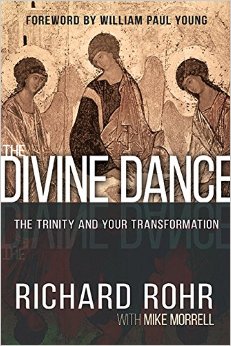 Next,
Next, 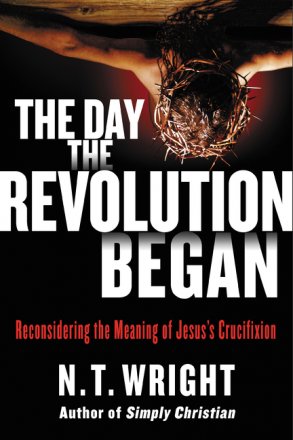 “Christian Origins and the Question of God” series.
“Christian Origins and the Question of God” series.
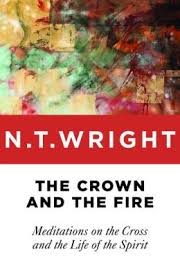
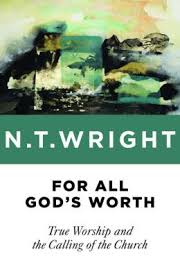 The Crown and the Fire: Meditations on the Cross and the Life of the Spirit
The Crown and the Fire: Meditations on the Cross and the Life of the Spirit
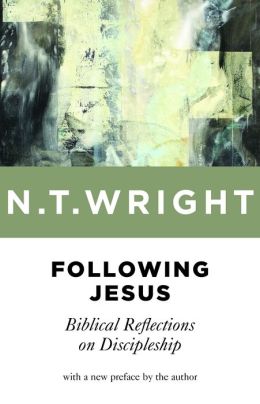
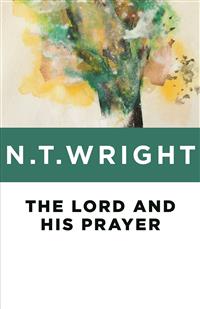
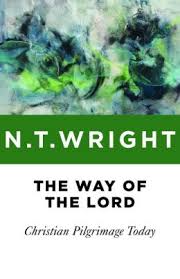 The Way of the Lord: Christian Pilgrimage Today
The Way of the Lord: Christian Pilgrimage Today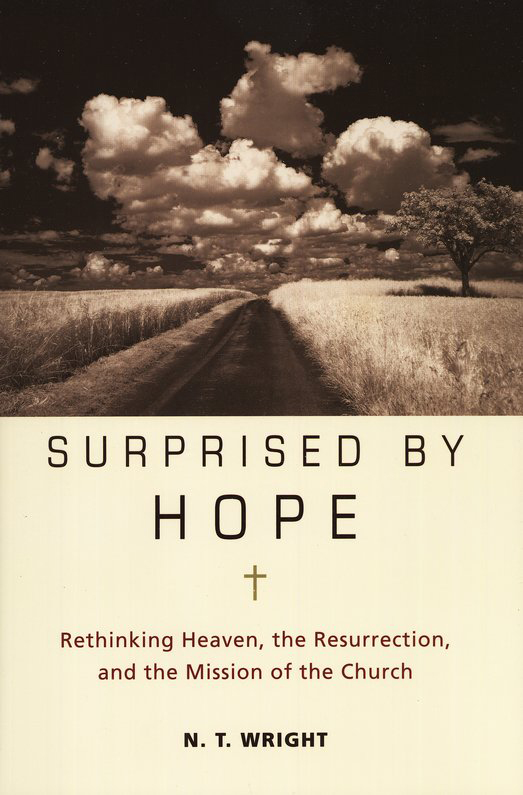 In some ways The Day the Revolution Began: Reconsidering the Meaning of Jesus’s Crucifixion is a follow up to Surprised by Hope. Its basic project is to examine how the New Testament teaching on the cross of Christ is properly understood within the context of the goal or outcome of that violent death; that is, what’s the point? Yes, yes, the cross is prelude to resurrection, but, for what? One can believe in the centrality of the cross of Christ and affirm the bodily resurrection as the creeds and orthodox churches all have and still get that question wrong.
In some ways The Day the Revolution Began: Reconsidering the Meaning of Jesus’s Crucifixion is a follow up to Surprised by Hope. Its basic project is to examine how the New Testament teaching on the cross of Christ is properly understood within the context of the goal or outcome of that violent death; that is, what’s the point? Yes, yes, the cross is prelude to resurrection, but, for what? One can believe in the centrality of the cross of Christ and affirm the bodily resurrection as the creeds and orthodox churches all have and still get that question wrong. 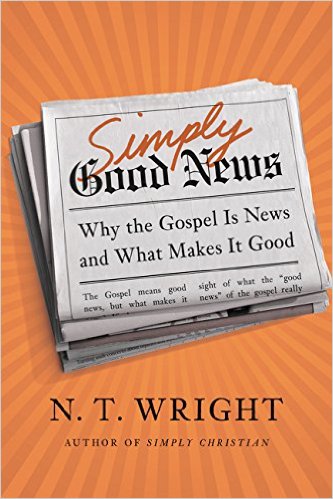
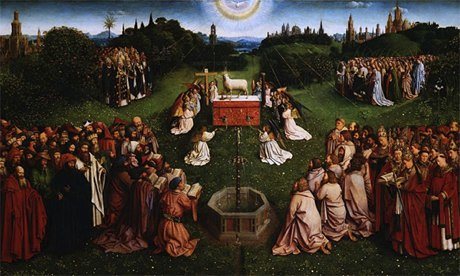
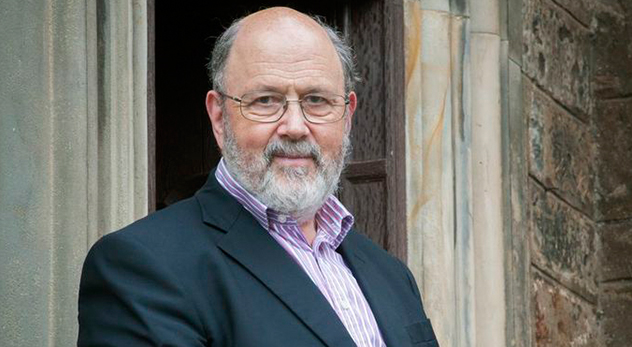 The Day the Revolution Began: Reconsidering the Meaning of Jesus’s Crucifixion is essentially a master class with Dr. N.T. Wright – offering a synthesis of his major work on Jesus and Paul; he sometimes says (without any noticeable pride or pushiness) something like “I covered this in Evil and the Justice of God” or “This line of thinking is different then what I wrote in my New Interpreters Commentary on Romans.” Of course he explains how all this new material relates to his important volume Surprised by Hope and How God Became King. This is a beautiful summary, yes, but it is very new stuff, too. And, interestingly, provides an occasional change in focus and/or reformulations of some of his previous writings. (Is this common in the academy, I
The Day the Revolution Began: Reconsidering the Meaning of Jesus’s Crucifixion is essentially a master class with Dr. N.T. Wright – offering a synthesis of his major work on Jesus and Paul; he sometimes says (without any noticeable pride or pushiness) something like “I covered this in Evil and the Justice of God” or “This line of thinking is different then what I wrote in my New Interpreters Commentary on Romans.” Of course he explains how all this new material relates to his important volume Surprised by Hope and How God Became King. This is a beautiful summary, yes, but it is very new stuff, too. And, interestingly, provides an occasional change in focus and/or reformulations of some of his previous writings. (Is this common in the academy, I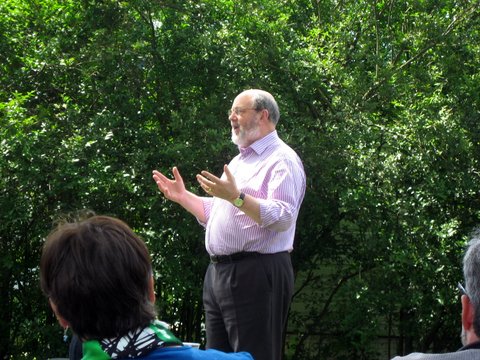 wonder, a fairly matter of fact admission that he is re-thinking some things. In some church circles that would be a sign of some great weakness, an admission of error – heaven forbid! – but he’s fairly nonplussed by it all. He just explains he’s rethought a few things and is breaking some new ground. I liked that a lot. So this is both an overview, a summary, a serious bit of Biblical research and a whole lot of new, new ground.
wonder, a fairly matter of fact admission that he is re-thinking some things. In some church circles that would be a sign of some great weakness, an admission of error – heaven forbid! – but he’s fairly nonplussed by it all. He just explains he’s rethought a few things and is breaking some new ground. I liked that a lot. So this is both an overview, a summary, a serious bit of Biblical research and a whole lot of new, new ground.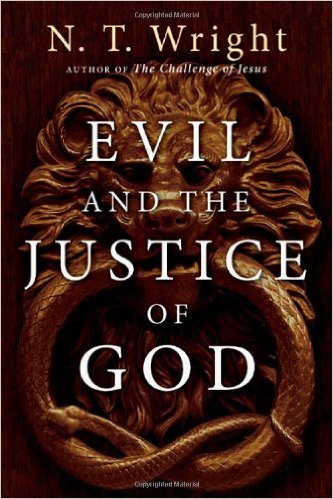 understand God the Father as mostly angry and in need of some bloodletting. I don’t think he explores the complex scapegoat theories of Rene Girard, but he is at least in that ball park of trying to understand mysteries and confusions, juxtaposing various Biblical models, metaphors, images, and formulations. I hope you have read his profound and moving Evil and the Justice of God; this pushes further in that direction.
understand God the Father as mostly angry and in need of some bloodletting. I don’t think he explores the complex scapegoat theories of Rene Girard, but he is at least in that ball park of trying to understand mysteries and confusions, juxtaposing various Biblical models, metaphors, images, and formulations. I hope you have read his profound and moving Evil and the Justice of God; this pushes further in that direction.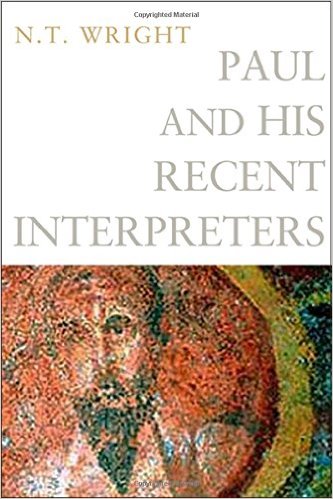 ootnotes would have facilitated.
ootnotes would have facilitated.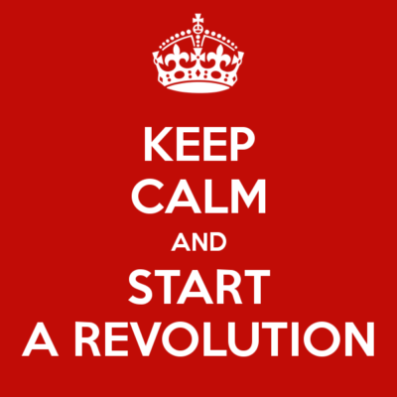
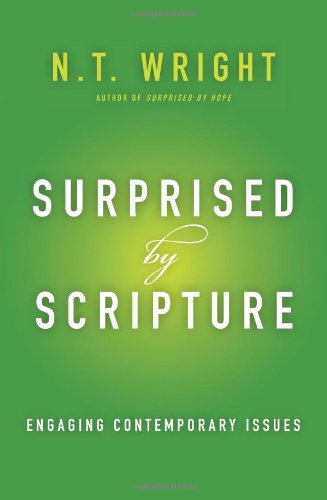


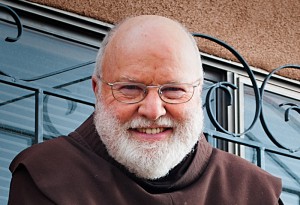
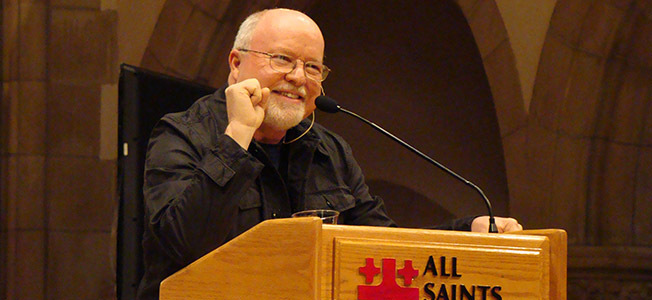 agents of God’s redemptive, healing work in the world. His calling to help build a new world of love and justice is founded upon the need for deeper ways to walk with God. Trust and Obey the old fundamentalists used to sing. Pray and Work chanted the Benedictines. Behold and Be somebody surely said. You get the picture.
agents of God’s redemptive, healing work in the world. His calling to help build a new world of love and justice is founded upon the need for deeper ways to walk with God. Trust and Obey the old fundamentalists used to sing. Pray and Work chanted the Benedictines. Behold and Be somebody surely said. You get the picture.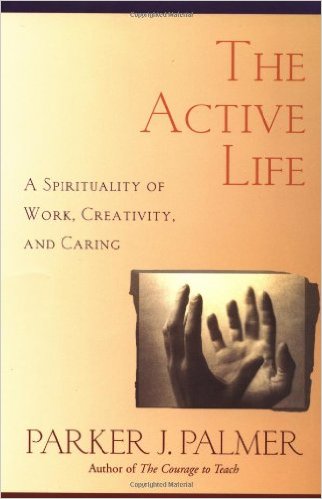 retreats using Parker Palmer’s lovely The Active Life: A Spirituality of Work, Creativity, and Caring. Richard Foster is an impeccable evangelically catholic writer about spiritual formation whose most beloved work, Celebration of Discipline, is arranged around a progression of spiritual practices that move from inward to upward to outward. He links meditation and study, worship and work, prayer and politics — beautiful and so very good. I really, really like a lesser-known book by Tony Campolo and Mary Albert Darling called The God of Intimacy and Action: Reconnecting Ancient Spiritual Practices, Evangelism, and Justice. Do you know it? I trust you know the marvelous social justicy prayer book for
retreats using Parker Palmer’s lovely The Active Life: A Spirituality of Work, Creativity, and Caring. Richard Foster is an impeccable evangelically catholic writer about spiritual formation whose most beloved work, Celebration of Discipline, is arranged around a progression of spiritual practices that move from inward to upward to outward. He links meditation and study, worship and work, prayer and politics — beautiful and so very good. I really, really like a lesser-known book by Tony Campolo and Mary Albert Darling called The God of Intimacy and Action: Reconnecting Ancient Spiritual Practices, Evangelism, and Justice. Do you know it? I trust you know the marvelous social justicy prayer book for 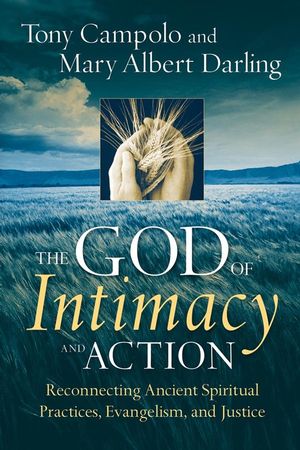 fixed hour prayers created by Shane Claiborne, Jonathan Wilson-Hartgrove and Enuma Okoro called Uncommon Prayer: A Liturgy for Ordinary Radicals. Some of the great Protestant theologians I respect — think of Abraham Kuyper, just for instance — lived in this rhythm of being “near unto God” and yet working for a public life ordered by God’s justice. He wrote treatises on God’s goodness made manifest in the details of creation, works on the Holy Spirit, and on social justice. Near Unto God is a meaty daily devotional based on one line of Psalm 73.
fixed hour prayers created by Shane Claiborne, Jonathan Wilson-Hartgrove and Enuma Okoro called Uncommon Prayer: A Liturgy for Ordinary Radicals. Some of the great Protestant theologians I respect — think of Abraham Kuyper, just for instance — lived in this rhythm of being “near unto God” and yet working for a public life ordered by God’s justice. He wrote treatises on God’s goodness made manifest in the details of creation, works on the Holy Spirit, and on social justice. Near Unto God is a meaty daily devotional based on one line of Psalm 73.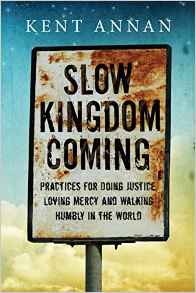

 comes with the territory of being a movement leader, a guy on the road, on the run, who isn’t firstly an academic. Or maybe it is because it is co-written; the book doesn’t make clear what role Mike played. I suspect the (maybe) young, evangelical editors at Whitaker House were in over their heads, working with 4
comes with the territory of being a movement leader, a guy on the road, on the run, who isn’t firstly an academic. Or maybe it is because it is co-written; the book doesn’t make clear what role Mike played. I suspect the (maybe) young, evangelical editors at Whitaker House were in over their heads, working with 4 nature of God the Father, God the Son, God the Holy Spirit, but he also suggests regularly that God is not (only?) a “person” but is the glorious flow of love between and among the Trinity. Trinity – mystery that it/they is/are – is described in Rohr’s lingo not as much as a Dancer (which I like) but as the Dance itself. Not the Person but the process. Unhelpfully, for me, at least, is his insistence on calling this Flow. Yeah, I know.
nature of God the Father, God the Son, God the Holy Spirit, but he also suggests regularly that God is not (only?) a “person” but is the glorious flow of love between and among the Trinity. Trinity – mystery that it/they is/are – is described in Rohr’s lingo not as much as a Dancer (which I like) but as the Dance itself. Not the Person but the process. Unhelpfully, for me, at least, is his insistence on calling this Flow. Yeah, I know.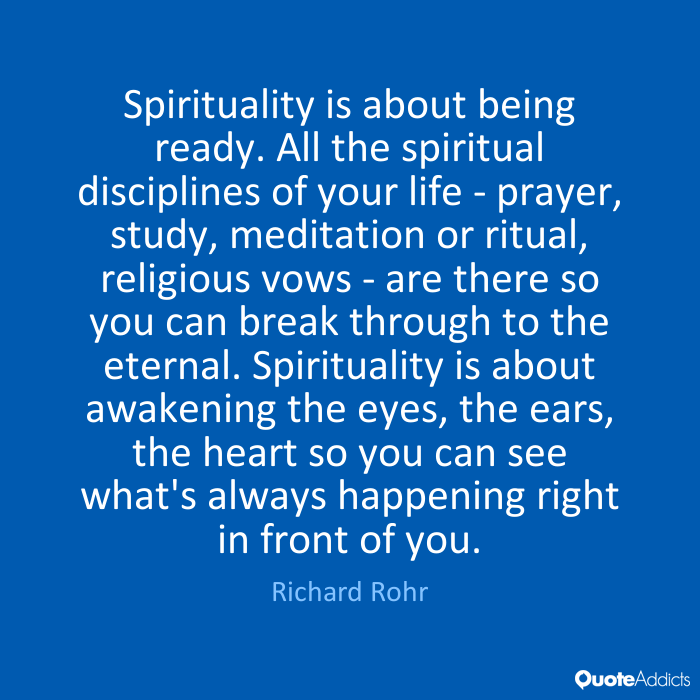
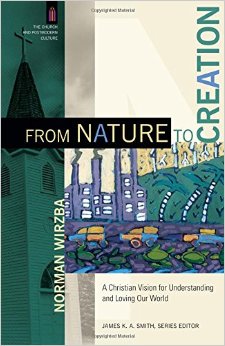 simply must affirm the full humanity and divinity of Christ. We must affirm the lively, living role of the Holy Spirit, empowerer and comforter. And, we must understand, honor, and experience a profound sense of reality as creation, upheld moment by moment by God, in Christ. Why not order from us Norman Wirzba’s From Nature to Creation: A Christian Vision for Understanding and Loving Our World as a fairly heady study of this extraordinary and urgent essential; see, too, the beautiful coffee-table gift book he edited full of nature photography and essays by the likes of Sylvia Keesmaat and Wendell Berry called The Gift of Creation: Images from Scripture and Earth for a more evocative, sensuous way into this deeper understanding of creation. We so enjoy having that here and would love to send a few out. I mention this here, now, because I fear that sometimes guidance about mystical experience and even this sort of dancing participation with God
simply must affirm the full humanity and divinity of Christ. We must affirm the lively, living role of the Holy Spirit, empowerer and comforter. And, we must understand, honor, and experience a profound sense of reality as creation, upheld moment by moment by God, in Christ. Why not order from us Norman Wirzba’s From Nature to Creation: A Christian Vision for Understanding and Loving Our World as a fairly heady study of this extraordinary and urgent essential; see, too, the beautiful coffee-table gift book he edited full of nature photography and essays by the likes of Sylvia Keesmaat and Wendell Berry called The Gift of Creation: Images from Scripture and Earth for a more evocative, sensuous way into this deeper understanding of creation. We so enjoy having that here and would love to send a few out. I mention this here, now, because I fear that sometimes guidance about mystical experience and even this sort of dancing participation with God pure awareness of God, that we enter “Consciousness” and “that is all there really is“? Does the beauty of things fade away? Is creation gone? What could this possibly mean? He then cites James 1:17 which affirms good things in life, so he can’t mean what he says. This is a fundamental flaw within most mysticisms that, try as we might with alternative ways of knowing and talk about the body, still is mired in gnosticism and/or Platonic dualism. If knowing the Triune God in the way Richard commends leads us away from or out of creation, then it is simply wrong and will not bear the transforming social fruit that he himself desires. I do not believe he believes that the Flow is “all there really is” but yet there it is on page 77. Maybe the charismatic tendencies of the editors at Whitaker House did not realize what a terribly bad way this is to express Oneness with God. I suppose I misunderstand Mike and Richard here, but it gave me the willies.)
pure awareness of God, that we enter “Consciousness” and “that is all there really is“? Does the beauty of things fade away? Is creation gone? What could this possibly mean? He then cites James 1:17 which affirms good things in life, so he can’t mean what he says. This is a fundamental flaw within most mysticisms that, try as we might with alternative ways of knowing and talk about the body, still is mired in gnosticism and/or Platonic dualism. If knowing the Triune God in the way Richard commends leads us away from or out of creation, then it is simply wrong and will not bear the transforming social fruit that he himself desires. I do not believe he believes that the Flow is “all there really is” but yet there it is on page 77. Maybe the charismatic tendencies of the editors at Whitaker House did not realize what a terribly bad way this is to express Oneness with God. I suppose I misunderstand Mike and Richard here, but it gave me the willies.)